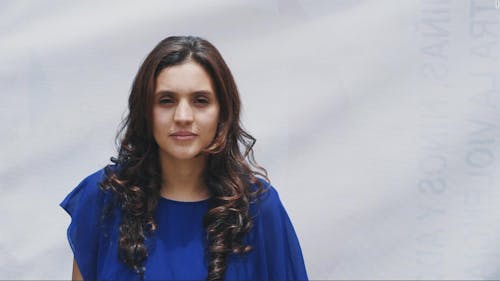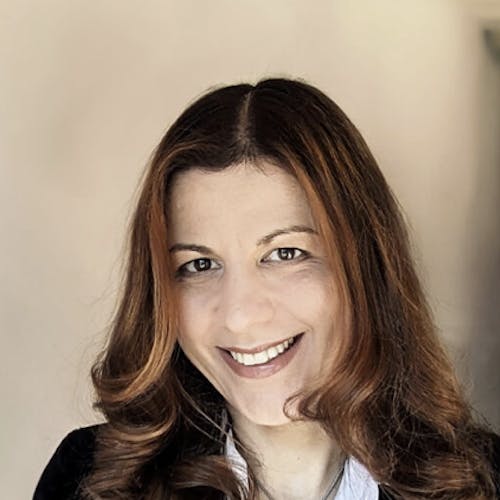Rutgers Law School alum wins landmark sexual violence case in international court

Brisa De Angulo, a Rutgers Law School alum and founder of the Breeze of Hope Foundation, recently won a case in the Inter-American Court of Human Rights (IACHR).
The IACHR is 1 of 3 international establishments that apply the language of the American Convention on Human Rights to certain cases raised in 20 countries located across Central and South America.
De Angulo said the IACHR's ruling in her case spanned 175 pages and established new guidelines for how countries under the IACHR's jurisdiction should handle situations involving incest-related sexual violence against children. Previously, factors such as misconceptions about consent, victim-blaming and the difficulties children could face while testifying limited how much consideration the legal system gave to incestuous violence, she said.
De Angulo said one of the most critical instructions in the IACHR decision for the case was to distinguish between incest and other forms of childhood sexual assault. She said this distinction was unprecedented in the legal field, despite activists fighting for such a policy for 25 years.
This determination mirrors distinctions that have historically been made between crimes that are similar but differ in terms of their targets, such as the distinction made between homicide and femicide, she said. Advocates called for femicide to be viewed distinctly from homicide because such crimes would be committed at least partly because the victims were women, De Angulo said. For similar reasons, she said incest and childhood sexual assault should be considered separately.
"Everyone's like, 'well, but rape already exists,'" she said. "Yes, but rape and incestual rape is very different because the amount of trust and need that the child has in the adult member has to completely be seen differently."
The question of consent also differs between incest and other sexual assault cases, De Angulo said. She said that since these children have preexisting relationships with these adults and look to them for guidance, it becomes much harder for them to defend themselves.
She said when children are assaulted by adults who are not related to them, family members will often support them and encourage them to seek justice. But when a child's assailant is related to them and their community, their family members are less likely to help or believe them.
"It's going to be the same family who says, 'maybe it's not what you want,'" she said. "'It's impossible,' 'this person didn't do it,' 'it's going to shame our family,' or 'we're going to solve it within the family.' And so, there's so much pressure, and that child has nowhere else to go. It's their family — it's all they have."
The IACHR's ruling also recognized the importance of training law enforcement and other legal officers in trauma-based counseling, De Angulo said. Currently, many legal entities are not adept in emotionally supporting underage victims of sexual violence, she said. Such deficiencies in the court system fatigue children who seek justice.
De Angulo, who obtained a master’s degree in psychology, said adopting a multifaceted approach to childhood sexual violence cases fosters better healing for the individuals affected. She said collaboration between lawyers and psychologists can help identify services and systems that will most benefit the victim in the long run.
Additionally, emphasizing the healing process helps child victims better advocate for themselves when their cases go to trial, De Angulo said. Better testimony in court also means a child is more likely to win their case.
"The application of this judgment is going to improve a lot in the prevention, healing and justice for children who have been sexually abused throughout the entire region," she said. "So more children will have access to justice in their own countries and hopefully more humane treatment and healing treatment throughout the process."
While the IACHR’s decision was issued in late January, De Angulo said the origin of her case dates back more than two decades, beginning when she was sexually assaulted as a child by a family member in Bolivia. She became one of the first teenagers in the country to take her case to court, an act that drew ire from both her family and the Bolivian government. De Angulo said she faced retaliatory measures such as arson, attempted abduction and attempted murder.
"It was a common practice that as women, as girls, we come here to be used by men, especially adult men in our families," she said. "While I was looking for help, everywhere I went, I was blamed. I was ostracized."
Eventually, De Angulo’s assailant escaped the country, leaving her case unresolved in Bolivian courts. During that time, De Angulo said she decided to help Bolivian children who found themselves in situations similar to hers. At 17 years old, she founded the Breeze of Hope Foundation, which provides legal and social services to child victims of sexual assault. She said the organization has since litigated more than 750 cases and increased Bolivia’s conviction rate for perpetrators of sexual violence from 2 percent to 95 percent.
The organization provides the children and families who seek out their services with in-house lawyers, psychologists and social workers who can support them indefinitely, De Angulo said.
During her time at Rutgers Law School, De Angulo met Beth Stephens, a distinguished professor of law, who assisted her in piecing together her childhood sexual assault case. Together, they consolidated records of the various human rights violations De Angulo had experienced to present to the IACHR.
De Angulo thanked her peers and professors at Rutgers Law School for supporting her throughout her case as the IACHR's final decision helped her and children across the world.
"When you can be involved in something that is healing and transformational, there's nothing better in this world," she said. "Being able to be part of the change and being able to hold those tears and give hope and let people know that there’s people who care and people who will listen, which is something that I didn't have ... is the most transformational, amazing feeling."



